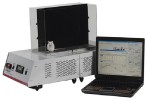Authors
S Ezzatpanah, MB Eriksen, AMG Moe et al
Lab
Division of Work Physiology, National Institute of Occupational Health (STAMI), Oslo, Norway
Journal
Neuroscience
Abstract
Ambient temperature changes trigger plastic biological responses. Cold temperature is detected by the somatosensory system and evokes perception of cold together with adaptive physiological responses. We addressed whether chronic cold exposure induces adaptive adjustments of (1) thermosensory behaviours, and (2) the principle molecular cold sensor in the transduction machinery, transient receptor potential melastatin subtype 8 (TRPM8). Mice in two groups were exposed to either cold (6 °C) or thermoneutral (27 °C) ambient temperatures for 4 weeks and subjected to thermosensory behavioural testing. Cold group mice behaved different from Thermoneutral group in the Thermal Gradient Test: the former occupied a wider temperature range and was less cold avoidant. Furthermore, subcutaneous injection of the TRPM8 agonist icilin, enhanced cold avoidance in both groups in the Thermal Gradient Test, but Cold group mice were significantly less affected by icilin. Primary sensory neuron soma are located in dorsal root ganglia (DRGs), and western blotting showed diminished TRPM8 levels in DRGs of Cold group mice, as compared to the Thermoneutral group. We conclude that acclimation to chronic cold altered thermosensory behaviours, so that mice appeared less cold sensitive, and potentially, TRPM8 is involved.
BIOSEB Instruments Used:
Thermal Gradient Test (BIO-GRADIENT),Thermal Place Preference, 2 Temperatures Choice Nociception Test (BIO-T2CT)

 Pain - Thermal Allodynia / Hyperalgesia
Pain - Thermal Allodynia / Hyperalgesia Pain - Spontaneous Pain - Postural Deficit
Pain - Spontaneous Pain - Postural Deficit Pain - Mechanical Allodynia / Hyperalgesia
Pain - Mechanical Allodynia / Hyperalgesia Learning/Memory - Attention - Addiction
Learning/Memory - Attention - Addiction Physiology & Respiratory Research
Physiology & Respiratory Research
 Pain
Pain Central Nervous System (CNS)
Central Nervous System (CNS) Neurodegeneration
Neurodegeneration Sensory system
Sensory system Motor control
Motor control Mood Disorders
Mood Disorders Other disorders
Other disorders Muscular system
Muscular system Joints
Joints Metabolism
Metabolism Cross-disciplinary subjects
Cross-disciplinary subjects Preclinical studies and opioids: role in crisis management in the United States
Preclinical studies and opioids: role in crisis management in the United States 